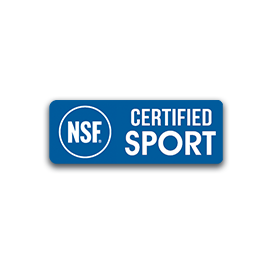Ironman Triathlete Coaches with Passion
 Julie Dunkle, who focused on swimming in her youth, learned to be a triathlete more than a decade ago, when a running injury led her to investigate the sport. She’s competed in ten Ironman triathlons and qualified for the world championships at Kona four times. Now, while she’s still competing and winning, she coaches others who want to take their triathlon performance to the next level. She knows the difference coaching makes – she’s in her second year with her fourth coach because, she says, she needs the relationship to help her avoid fatigue.
Julie Dunkle, who focused on swimming in her youth, learned to be a triathlete more than a decade ago, when a running injury led her to investigate the sport. She’s competed in ten Ironman triathlons and qualified for the world championships at Kona four times. Now, while she’s still competing and winning, she coaches others who want to take their triathlon performance to the next level. She knows the difference coaching makes – she’s in her second year with her fourth coach because, she says, she needs the relationship to help her avoid fatigue.
A Passion for Coaching
“Coaching in triathlon is sort of my passion,” says Dunkle, who started coaching five years ago. “The thing about coaching that’s so cool is every person is different because it’s a personality thing. Some hire a coach because they won’t otherwise do the workouts. They need to be held accountable. Then you have the opposite, the person who always does 50 percent more than they should, and they train themselves into the ground. They’re constantly getting injured or tired, and their never racing to their potential. They need a coach to say, ‘You’ve done enough; you’re ready to race.’
Other clients want a coach to handle the daily details of their training or provide an expert excuse for the amount of time they’re spending on the sport. “I have some people who do it because they say to their spouse, ‘My coach says I have to do this,’” Dunkle says. “They’re working full-time. They’re parents and running a house. They don’t want to think about ‘What am I supposed to do today? Swim? Bike? Run? How much?’”
 Dunkle reviews each athlete’s workout, uploaded online, every day. “Did they do the workout?” she says. “Did they do it right? There’s a lot of daily interaction about what’s going on in their training.”
Dunkle reviews each athlete’s workout, uploaded online, every day. “Did they do the workout?” she says. “Did they do it right? There’s a lot of daily interaction about what’s going on in their training.”
She also reviews her athletes’ workouts throughout the day and customizes them to fit their personal schedule. “You’re mapping out what they’re going to be doing,” she says. “I chat with my athletes on a semi-regular basis. That’s when we talk about all the other things. Is life getting in the way of their training? Sometimes it’s their nutrition. I’ve been racing for 10 years, so almost anything these people are going to come up with, I’ve done it,” from falling on the side of the road to becoming nauseated to failing to finish a race.
“It’s helpful to be able to talk to my athletes and say, ‘This could happen. How do you deal with that? How do you get through that?’ It’s dealing with people in the best way. You’re not managing them because they pay you, but you’re a part of their goals and hopefully their success. I have people they finish their race and I’m the first person they call.”
Dunkle, who coached 16 people last year, has cut back to seven this year for the sake of her own schedule (in addition to her own training and events, she works another job). The athletes are between 30 and 50 years old, and 70 percent are men.
“I have evolved to more experienced athletes,” she says. “When I first started, I had a lot of beginners. You start to figure out what works for you personality-wise. They’re all professionals. They all have jobs… I’m coaching people who are trying to achieve a certain time or goal, not just finish the race. It’s getting past the initial phase.”
Three of the athletes have worked with her for three years each, with a couple joining this year.
“You kind of grow together,” Dunkle says. “You watch their improvement. When you get a new athletes, it’s a new relationship. It’s like you’re dating again. You’re on your toes in the beginning because you’re establishing this relationship. I coach individually. I give a lot of personal feedback. I don’t give people the same schedule.”
The coaching includes advice on small changes that can make significant differences in an athlete’s performance and success.
“You start to look for all the tiny things of how you get yourself to the next level,” she says. “You try to figure out what you can do. “Once you figure out the logistics and you train and get that done, there’s a huge component of nutrition.” Calories, fluids, and sodium become major issues in the 90-degree humidity of Hawaii during Kona, for example.
Since I started using The Right Stuff, I’ve had a great year
“Some people could eat a cheeseburger on their ride. My stomach does not operate that way,” says Dunkle, a heavy sweater who had three unpleasant races because of nutrition mistakes that led to frequent restroom stops and nausea. “I think in any sport anybody gets to the point ‘How do you get to the final percentage?’ That’s how I found The Right Stuff. Since I started using The Right Stuff, I’ve had a great year,” winning her age group in each race she’s entered.






